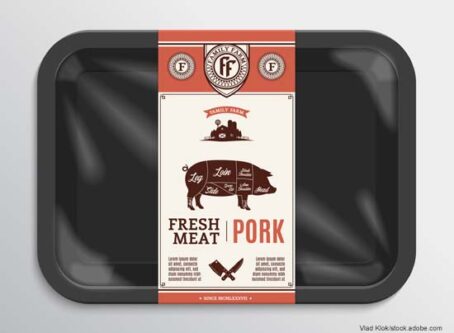OOIDA lends support in fight against AB5
California’s Assembly Bill 5 will cause “immediate and irreparable harm” to thousands of truckers, the Owner-Operator Independent Drivers Association says.
OOIDA on Monday, June 7, filed an amicus brief with the U.S. Court of Appeals for the Ninth Circuit in support of the California Trucking Association’s petition for a rehearing en banc. An en banc hearing is held before all the judges in the court, not just a three-judge panel like the one that heard the initial arguments in this case.
In May, the California Trucking Association asked the Ninth Circuit to review its ruling that the state worker classification law, AB5, is not preempted by federal law.
OOIDA says its members in and outside of California would be negatively affected if the decision by the Ninth Circuit to remove the injunction preventing AB5 from being enforced on motor carriers stands.
“AB5 would eliminate a long-established business model into which hundreds of thousands of independent contractors have invested their blood, sweat and treasure to create their own businesses and be their own bosses,” OOIDA wrote in its amicus brief.
Ninth Circuit ruling
On April 28, a three-judge panel ruled 2-1 that California’s AB5 “is a generally applicable labor law” and called for the removal of a preliminary injunction against enforcing the state law on motor carriers. If the petition for a rehearing en banc is granted, a full 11-judge panel of the Ninth Circuit will hear the case.
The California Trucking Association contends that AB5 would force the end of the industry’s owner-operator model and would be in violation of the Federal Aviation Administration Authorization Act (F4A), which prevents states from enforcing a law or regulation related to a price, route, or service of motor carriers.
OOIDA arguments
OOIDA agreed as AB5 codifies the California Supreme Court’s establishment of the ABC Test, which appears to make it impossible for truck drivers operating for a motor carrier to qualify as an independent contractor.
“Independent owner-operator drivers must either become employee drivers and forfeit businesses they have built or give up all business opportunities that might take them to California,” OOIDA’s amicus brief stated. “AB5’s effects will be felt in every sector of the economy and throughout the region and the country. AB5’s intrusion into motor carriers’ operations represents the type of pervasive state regulation that Congress sought to abandon through federal deregulation and to preempt through the F4A.”
OOIDA says the April 28 decision contradicts past rulings by the Ninth Circuit and the U.S. Supreme Court.
“This court should grant plaintiffs’ petition to rehear this case and reinstate the preliminary injunction against enforcement of AB5,” OOIDA wrote.
Dissent
One judge from the Ninth Circuit’s three-judge panel agreed with the California Trucking Association and OOIDA. Judge Mark J. Bennett offered a fiery dissent, saying the California Trucking Association’s members “will now suffer irreparable injury.”
“I do not agree … that a law like AB5 – which affects motor carriers’ relationships with their workers and significantly impacts the services motor carriers are able to provide to their customers – is not related to motor carriers’ services and thus is not preempted,” Bennet wrote.
In September 2019, California’s Senate passed AB5. The law, which was intended to apply to a variety of industries, went into effect Jan. 1, 2020.
The California Trucking Association sued and the U.S. Southern District Court of California granted the preliminary injunction to stop the state from enforcing it on motor carriers. The Owner-Operator Independent Drivers Association also filed an amicus brief in support of the lawsuit at that time, saying “AB5 not only threatens the business models and balance sheets of large motor carriers, it will also result in irreparable harm to owner-operators and small-business motor carriers.”
If the Ninth Circuit grants the en banc petition, the injunction will remain in place until a decision is made.
Ultimately, the case could end up in the U.S. Supreme Court.
“The California Trucking Association will take any and all legal steps necessary to continue this fight on behalf of owner-operators and motor carriers operating in California,” Shawn Yadon, CEO of the California Trucking Association, said in a news release after the April 28 ruling. LL









